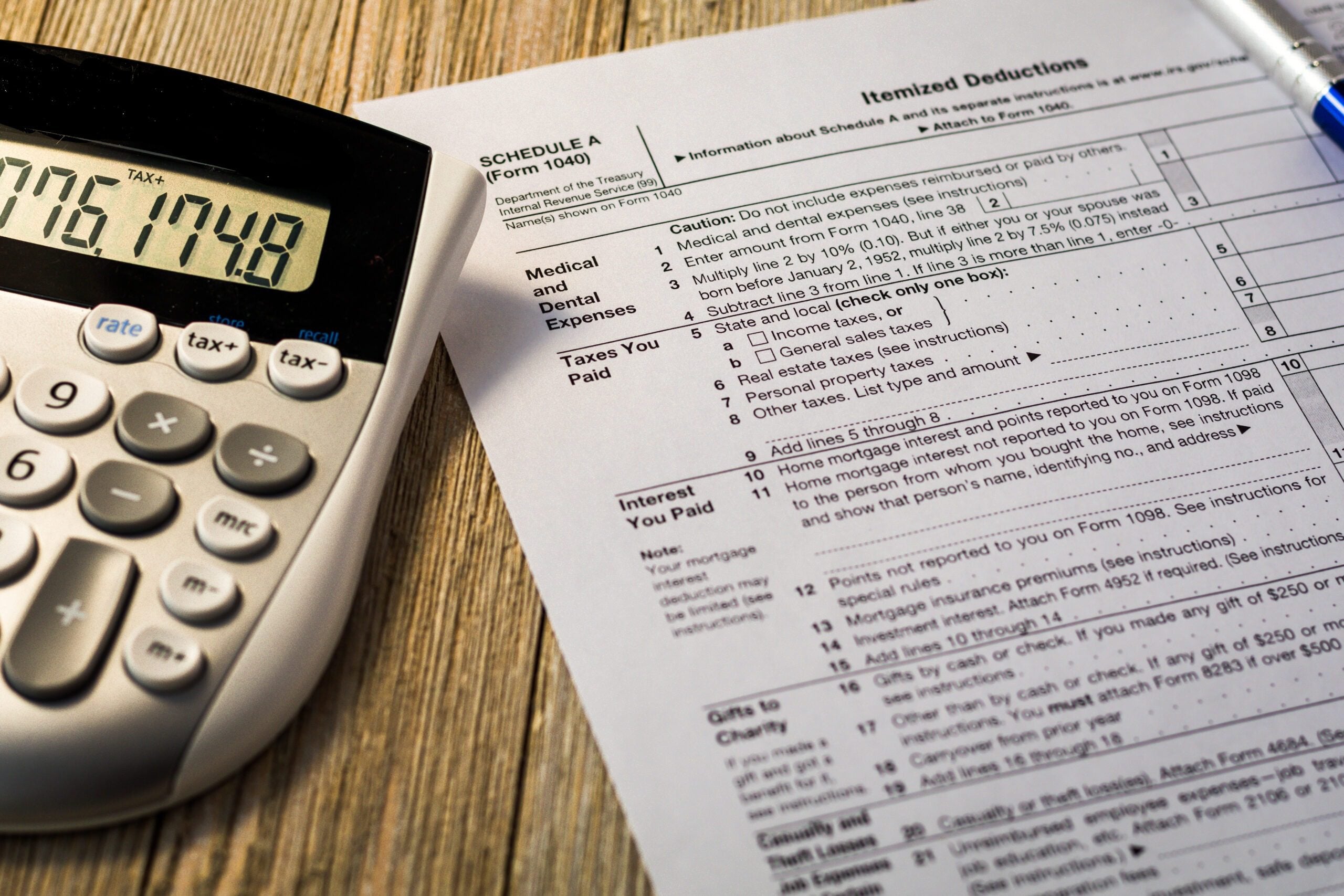
When you start a business, you may need an employer identification number (EIN) to identify the company for tax and financial purposes. Also known as a federal taxpayer identification number, your EIN is a unique nine-digit number that functions for your business in a way similar to a Social Security number (SSN).
Once you have an EIN, it’s permanently linked to your business entity. It can’t be reassigned or canceled, but the account can be closed if you decide to close your business. An EIN number can also be reactivated by the “responsible party,” a person designated on the original application as being responsible for the company.
Not every business needs an EIN, but the IRS does require one in most cases. Having one can also be helpful when seeking financing from traditional or alternative lenders. Here’s what you should know about determining EIN requirements and how an official tax ID can benefit your company.
What Is an EIN?
Your Employer Identification Number (EIN), or Federal Tax Identification Number, is a 9-digit number issued through the IRS for tax purposes. Most U.S. businesses need an EIN to fall within IRS reporting requirements, although there are a few exceptions.
You can apply for an EIN online at the IRS website. Once you have one, it will remain the same throughout your business’s lifetime.
How to Find Your Business Tax ID Number?
Your EIN is located on your business tax returns and the official IRS notice that was sent when you set up your EIN. If you don’t have one handy, you can contact your business bank and ask them.
If you still can’t find it, you can contact the IRS’ Business & Specialty Tax Department at 1-800-829-4933. They will ask for personal information to verify your identity, so make sure to have that readily available.
Do You Need an EIN for Your Business?
According to the IRS, your business must have an EIN if:
- You have employees
- It’s a partnership or corporation
- You withhold taxes on income for non-resident aliens
- You have a Keogh retirement plan
- You file tax returns for alcohol, tobacco, firearms, employment or excise
- You’re involved with trusts, estates, plan administrators, farmers’ cooperatives, real estate mortgage investment conduits or non-profit organizations
Why Do You Need an EIN?
You need an EIN to file business tax returns and pay your employees. You might also be required to supply your business tax ID when you:
- Open a business bank account
- Apply for a business credit card
- Apply for permits or licenses
- Apply for a business loan
Most sole proprietorships and limited liability companies (LLCs) without employees aren’t required to have an EIN number, but it may be a good idea to get one anyway.
Without an EIN, you need to use your SSN for business transactions, which can put your identity at risk. This may be a particular concern for independent contractors with large client bases. As a contractor, you have to put your SSN on every W-9 you file, and your clients use it when issuing your 1099-MISC forms at tax time.
Using an EIN doesn’t safeguard completely against identity theft, but it does help protect your personal information and assets by minimizing the frequency with which your SSN is recorded.
Using an EIN also makes your company look more legitimate to banks, lenders, vendors, and clients. It indicates you take your business seriously and are committed to your work. The number differentiates a business venture from a side hustle or hobby and shows you intend to stick with it for the foreseeable future.
Will I Ever Need a New EIN?
If your business changes ownership or structure at any time, you may need to apply for a new EIN. Examples of such changes include:
- Incorporating a sole proprietorship
- Corporations merging to create a new corporation
- One member of a partnership acquires the whole business and runs it as a sole proprietor
What Are the Eligibility Requirements to Get an EIN?
You can apply for an EIN if you meet the following criteria:
- Your primary business is located in the United States or U.S. Territories
- You have a valid Taxpayer Identification Number (SSN, ITIN, EIN)
- The person designated as the responsible party hasn’t previously filed for an EIN online.
The “responsible party” is the individual or entity who “controls, manages, or directs the applicant entity and the disposition of its funds and assets,” according to the IRS. Only one responsible party per day may apply for an EIN.
How to Apply for an EIN
You can get your EIN online for free by completing the employer identification number application on the IRS website. This “interview-style” application walks you through a series of questions with links to pertinent instructions and helpful information.
For security reasons, you can’t use any automated tools to complete your EIN application, and the system will log you out after 15 minutes of inactivity. Be sure to set aside a window of time during which you won’t be interrupted so that you don’t have to start the process all over again!
The IRS will issue your EIN as soon as the application is completed. You can download and print the paperwork immediately. However, it may take up to two weeks for your EIN to become part of official IRS records.
EIN Number Lookup: What to Do if You Can’t Find Your EIN
After the IRS issues your EIN, you should keep the paperwork they give you so that you always have quick access to the number. But running a business can be crazy and unpredictable, and your EIN is just one more thing to try to remember in the middle of the daily rush.
Don’t panic if you find yourself sitting down to fill out business documents or tax returns and forget your tax ID number. Even if you lose the file with the original IRS documents, there are several ways to locate your EIN.
First, look at other business paperwork. Your EIN should be on your tax returns from previous years or any business loan applications you’ve filed. Business licenses and permits also have your EIN, as do bank account statements and credit reports.
If your files are really a mess, you can call the bank where you have your business account or get in touch with your accountant to get your EIN. Calling the IRS is also an option; the IRS Business & Specialty Tax Line is available from 7 a.m. to 7 p.m. Eastern time, Monday through Friday. However, be prepared to wait for quite a while to talk to someone if you choose this option.
You can check online databases or use a paid service like EIN Finder to locate your number as a last resort. But before turning to these paid options, it’s better to try these free (and safe) methods first!
Use Your EIN to Grow Your Business with Fast Funding
One of the perks of setting your business apart as its own entity with an EIN is the opportunity to easily access the funding you need to invest in growth. National Business Capital offers a wide variety of business loans and financing options with flexible terms to meet your needs.
Whether you want to take on more employees, upgrade your equipment, or expand into a second location, a business finance advisor at National can point you to the perfect financing option.
Apply now to get started!
Frequently Asked Questions
Can I use my Social Security Number instead of an EIN for my business?
Yes, but you might not be able to as your business grows. Sole proprietors with no employees aren’t required to have an EIN, but not having one restricts you from opening business bank accounts, applying for licenses/permits, and financing your business growth through banks and non-bank lenders.
Using your social security number is an option in the early stages of your business, but it’s recommended to apply for an EIN sooner rather than later to ensure you’re able to take advantage of opportunities.
How long does an EIN stay active?
EINs are active for the lifetime of a business. They never expire.
How to change or cancel an EIN?
If you want to change or cancel your EIN, you’ll send a physical letter to the IRS with your legal name, business address, EIN number, and reasoning for the account closure/change.
This won’t “cancel” your EIN; It suspends the IRS business account associated with the EIN.
If I've lost my EIN, how can I retrieve it?
You can find your EIN on business tax returns and the official notice you received from the IRS when you opened your account. You can also contact the bank you do business with for this information.
If you still can’t find it, you’ll need to contact the IRS.

Joseph Camberato
Joe Camberato is the CEO and Founder of National Business Capital. Beginning in 2007 out of a spare bedroom, Joe and his team have financed $2+ billion through more than 27,000 transactions for businesses nationwide. He’s made it his calling to deliver the educational and financial resources businesses need to thrive.
Customer Reviews
Accelerate Your Success
Seize the opportunity to grow your business and gain access to the capital you need.